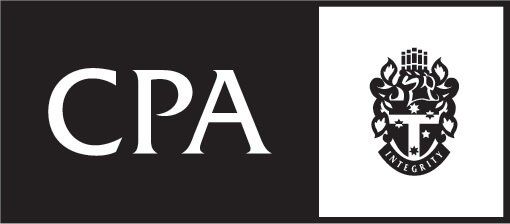Get in Touch
P: (03) 9853 1000
F: (03) 9853 8298
A:
Level 1 86-88 Charles Street,
Kew VIC 3101
PO Box 345
KEW, VIC, 3101
Australia
August 2024 - Update
Are you Audit Safe?
The possibility of being selected for an audit or investigation is increasing each year as the Australian Taxation Office (ATO) and other government agencies widen the scope of their investigation activities utilising data collection/detection capacity, data matching and benchmarking/risk profiling. Even if you can substantiate your claim for an allowable deduction, if queried, you must still go through the audit process.
To alleviate the cost and stress we have offered you to take out our audit protection and you should have received an offer letter from us few weeks ago. It is a cheap and efficient way of dealing with an ATO audit. For more information, please contact our office.
Tips for correctly claiming deductions for rental properties
Taxpayers to consider the following factors in determining claims for rental deductions.
Repairs and general maintenance are expenses work done to remedy or prevent defects, damage or deterioration from using the property to earn income. These expenses can be claimed in the year the expense occurred.
Initial repairs include any work done to fix defects, damage or deterioration existing at the time of purchase. These are capital repair expenses and cannot be claimed as a deduction.
Capital works are structural improvements, alterations and extensions to the property, claimed at 2.5% over 40 years with some exceptions. Deductions for capital works can only be claimed afterthe work has been completed.
Improvements or renovations that are structural are also capital works. Work going beyond remedying defects, damage or deterioration which improves the function of the property are improvements.
Repairs to an 'entirety' are also capital and cannot be claimed as repairs. Repairs to an entirety generally involve the replacement or reconstruction of something separately identifiable as a capital item
Depreciating assets must be claimed over time according to their effective life.
Small business energy incentive
Businesses with an aggregated annual turnover of less than $50 million that had upgraded or purchased a new asset that helps improve energy efficiency during the 2024 income year should consider the small business energy incentive.
This new measure gives them the opportunity to claim a bonus deduction equal to 20% of the cost of eligible assets or improvements to existing assets that support more efficient use of energy.
This incentive applies to eligible assets that were first used or installed ready for use for a taxable purpose between 1 July 2023 and 30 June 2024.
Eligible improvement costs must have been incurred during this period to be eligible for the bonus deduction.
Up to $100,000 of total expenditure is eligible under this incentive, with the maximum bonus deduction being $20,000 per business.
This 20% bonus deduction is on top of other existing ones. Businesses can claim both the ordinary deduction for the expense as well as the bonus deduction.
Claiming work-related expenses
The ATO is advising taxpayers that having records to substantiate claims is essential to prove deductions can be claimed, having regard to the following in particular:
- A bank or credit card statement on its own will generally not be enough evidence to support a work-related expense claim. Taxpayers instead need detailed written evidence such as a receipt.
- If a taxpayer's total claim for deductible work expenses is $300 or less, they can claim a deduction without written evidence, but they must still be able to show that they spent the money and how they calculated the amount being claimed.
- While some deduction types do not require receipts (e.g., laundry expenses), some kind of record may still be necessary. Taxpayers may also need a record that shows their private and work-related use (e.g., a diary), and how the amount claimed as a deduction was calculated.
Federal Court overturns AAT's tax resident decision
The Federal Court has recently overturned an Administrative Appeals Tribunal decision that a taxpayer was a resident of Australia for tax purposes even though he was mostly living and working overseas during the relevant period.
The taxpayer was a mechanical engineer who became an Australian citizen in 1978.
He lived and worked in Dubai, United Arab Emirates, from September 2015 until 2020, and he spent less than two months in Australia for each of the 2017 to 2020 income years visiting his family.
The AAT nevertheless held that he was a tax resident of Australia for each of the 2016 to 2020 income years, as he "maintained an intention to return to Australia and an attitude that Australia remained his home."
On appeal to the Federal Court, the taxpayer succeeded in having the AAT's decision overturned.
The Federal Court held, in considering whether the taxpayer was a resident of Australia according to 'ordinary concepts', that the AAT applied the wrong test, confusing it with the 'domicile test'.
Also, in relation to the 'domicile test', the Federal Court noted that the AAT further misunderstood how to establish that a person had a 'permanent place of abode' outside of Australia.
The Federal Court accordingly held that the taxpayer's appeal be allowed, and the matter be remitted to the AAT for determination according to law.
The information provided in this Newsletter is general in nature and if you have any queries or require further information or assistance with the above, please contact our office.
Crawford News




Think we can help you with something?
Think we can help you with something?
Think we can help you with something?
Get in Touch
P: (03) 9853 1000
F: (03) 9853 8298
A: Level 1, 86-88 Charles Street,
PO Box 3135 COTHAM, VIC, 3101
Australia
Services


